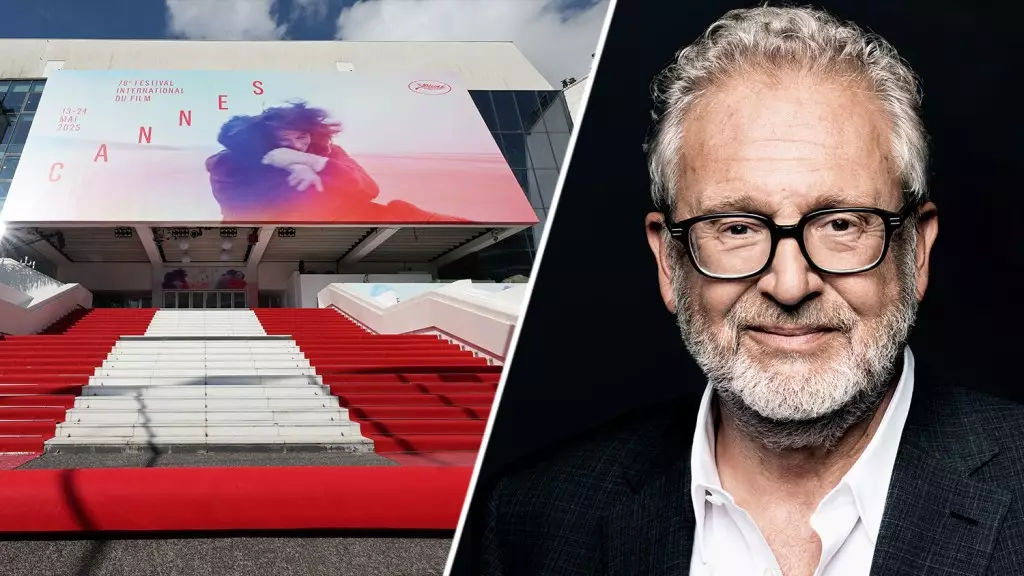Attending the Cannes Film Festival, one cannot overlook the stark contrast between its glamour and the challenges gnawing at the film industry. Each year, as hundreds converge on the sophisticated Riviera, a familiar symphony of complaints emerges—no matter the decade. Distributors, producers, and filmmakers share their collective grievances: inadequate film selections, exorbitant pricing, dreadful coffee, and unpredictable weather. These recurrent lamentations seem almost ritualistic, binding attendees in a common experience. Yet, beyond this predictable backdrop lies a crucial understanding of an industry grappling with profound transformation.
The current cinematic landscape has moved from physical exchanges of faxes and phone calls to a realm dominated by technology—streaming services are altering consumption patterns, indie filmmakers are stretching the boundaries of storytelling, and audiences are demanding more than ever. Cannes must navigate this changing terrain with both caution and ambition. While the festival embodies the essence of artistry and culture, it also reflects the precariousness of an industry at a crossroads.
Emerging Voices and Lasting Impact
One cannot underestimate the festival’s role in unearthing raw talent and innovative narratives. Mascha Schilinski’s film, *In die Sonne schauen (Sound of Falling)*, exemplifies Cannes’ ability to highlight works that resonate deeply with the audience. Its inclusion in the Official Competition demonstrates a commitment to progressive artistic vision—something that is not merely about aesthetics but also about capturing the zeitgeist of our times. It is this intentional recognition of distinctive voices that affirms Cannes’ relevance in an ever-evolving cinematic landscape.
As the industry grows, so does the need for authenticity. Films must transcend mere entertainment; they need to ignite conversations, challenge preconceptions, and reflect the human experience in its fullest complexity. Cannes offers an unparalleled opportunity to elevate these discussions—serving as a platform for underrepresented creators to amplify their stories. Embracing this evolution means reshaping our understanding of cinema, allowing it to resonate across cultures and demographics.
The Market: Its Definition and Direction
In an era characterized by rapid growth and unprecedented access to diverse content, one might question the notion of art as a commodity. The market for cinema is not a mercurial entity dictated solely by demand; rather, it is a canvas colored by the narratives we choose to promote. The decisions we make shape our industry’s future. Therefore, those entrenched in the realms of production and distribution must remember that the market’s vitality hinges on the courage to innovate.
Stagnation will only breed mediocrity, leading to a self-fulfilling prophecy where the industry contracts under the weight of its own limitations. It becomes essential to embrace originality and tackle relevant themes with emotional depth. Audiences are not passive; they react to the quality and resonance of the stories presented. If we sow seeds of bold storytelling, we cultivate a flourishing market that thrives on creative risk-taking, passionate projects, and compelling narratives.
Cannes: A Charmed Chaos
It’s tempting to view Cannes through a lens of distraction and chaos, but therein lies its beauty—the festival remains a vital confluence of creativity, tradition, and contemporary relevance. Yes, it has its flaws: the logistics can be maddening, the atmosphere chaotic, and the caffeine supply not up to par. Yet, within this frenetic environment breeds possibility. Cannes is the sacred ground where art and commerce meet, where innovators can challenge norms, and where the future of film can be envisioned and reimagined.
As industry veterans and newcomers alike wander the Croisette, they find themselves at the precipice of change—an invitation to shape the coming narratives and redefine cinematic expressions. The future of our industry might seem clouded, but it is our duty to bring clarity through ambition and passion. More than just a festival, Cannes is a crucible for creativity; it is here that we can continue to carve a vivid path for cinema’s evolution.
In this era of uncertainty, we must remain vigilant and committed to fostering an environment ripe for bold storytelling. The next chapter of cinema is not predetermined; it’s a collaborative journey that requires each of us to embrace authenticity, challenge the status quo, and above all, believe in the transformative power of film.
